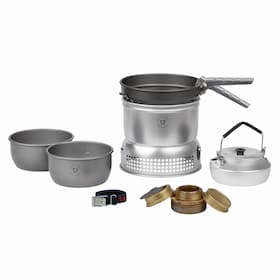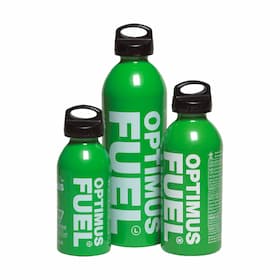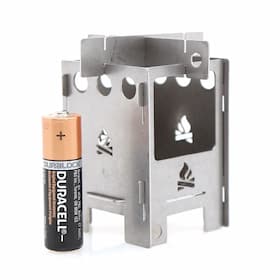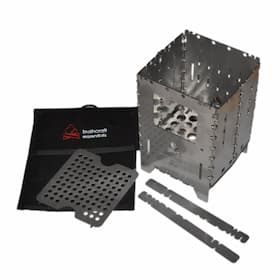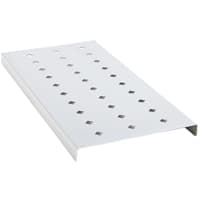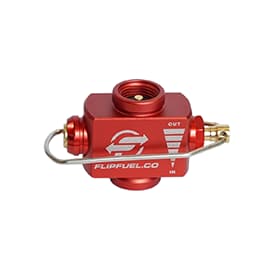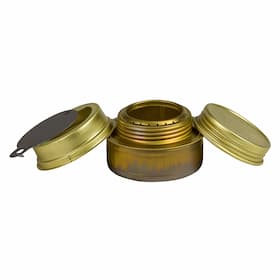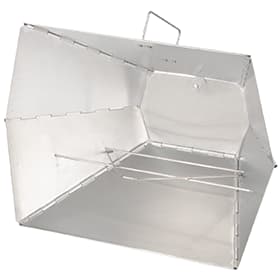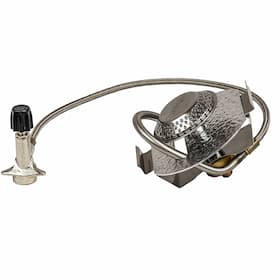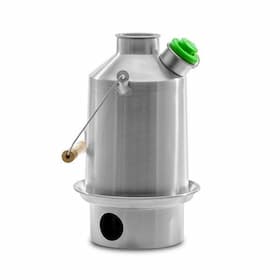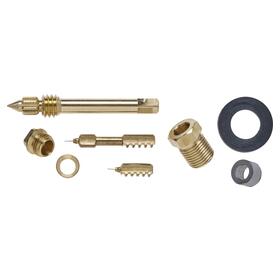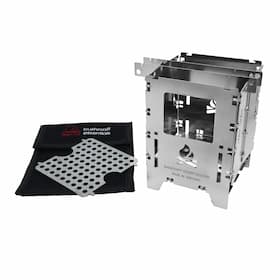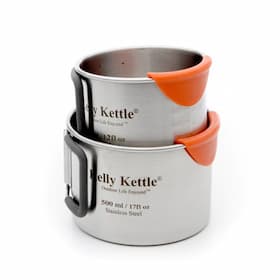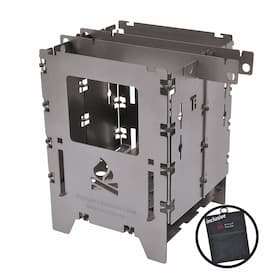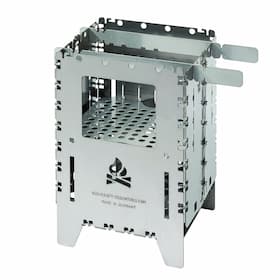COEC's Choice in Camping Stoves
Popular This Spring
Types of Camping Stoves
Expert Advice
Choosing the Right Camp Stove
Cooking over an open camp fire is synonymous with being in the great outdoors, but often times is not practical due to a lack of dry, usable wood for fuel, weather conditions, available daylight, or fire bans. Packing a portable stove provides the means to be able to boil and cook no matter what, and ensures that whatever issues you might encounter on a trip, lack of hydration, nutrition and a good hot meal is not one of them.
Fuel sources for stoves include wood, alcohol, isobutane, or petroleum derivatives (white gas/coleman fuel, kerosene, gasoline, diesel, jet fuel). Each has advantages and disadvantages.
Wood Camp Stoves
Wood and twig stoves offer a practically inexhaustible, readily available fuel source (unless you’re travelling in the arctic), that provides excellent heat, and quick boil and cook times. Twig stoves such as the Firebox stove and Kelly Kettles require minimal amounts of wood, and the twigs and small branches that are usually overlooked for campfires are a readily available and abundant fuel source. Disadvantages can be weather related (high winds and rain can make operation difficult), the lack of the ability to precisely control temperature while in operation, and the clean up of creosote and soot off of pots and pans after use.
Alcohol Camp Stoves
Fuel alcohol (methyl hydrate, denatured alcohol) is a readily available and cheaper alternative to it’s petroleum based competitors. As alcohol stoves work without pressurizing the fuel, they run completely silently, and the simple, straightforward burner design features no moving parts, and no components to clog, jam, or break. Alcohol stoves offer the ability to control flame and heat output, and operate without soot or smoke. Alcohol stoves do offer less power density than pressurized fuel burners, meaning comparatively longer boil and cook times, as well as decreased efficiency at high elevation, and in extremely cold temperatures.
Isobutane Camp Stoves
Isobutane stoves feature a pressurized mix of butane and propane, isobutane canisters offer quick set up, controllable temperature and high heat output - resulting in fast boil and cook times. Great for quick coffee in the morning on summer canoe trips, but as optimally efficient operation occurs only in warmer temperatures (+10C or higher), isobutane canisters are more or less relegated to summer use. Additionally, isobutane canisters are not refillable, and must be packed out.
Petroleum Camp Stoves
White gas, kerosene, gasoline, jet fuel, and diesel stoves feature pressurized fuel canisters, and the highest heat outputs of all fuel sources. Usable in cold temperatures, and at high elevations, petroleum stoves operate in environments and conditions where other stoves cannot. While controllable output, and ready availability of fuel are advantages, petroleum stoves can be very loud in operation, feature moving parts and components that require maintenance, and rely on fossil fuel for their operation.











